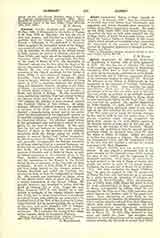

Alberoni, GIULIO, Cardinal and statesman; b. May 30, 1664, at Firenzuola in the duchy of Parma; d. June 26, 1752, at Piacenza. He was the son of very poor parents, and labored as a farm hand or gardener until his fifteenth year. After that he became a bellringer in the cathedral of Piacenza, where he gained the favorable notice of the Bishop, was ordained priest, and appointed a canon. The Duc de Vendome, in command of the French troops in Italy, became the patron of Alberoni, took him to Paris (1706), and made use of his talents in several important affairs. Having accompanied Vendome to the court of Spain in 1711, the reputation of Alberoni’s talents won for him, after the death of his patron, the position of agent of the Duke of Parma in Madrid. He was very active in furthering the accession of the French candidate for the throne of Spain, Philip V, and afterwards became the royal favorite. Upon the death of the Queen (Maria Luisa of Savoy), Alberoni used his influence to bring about, in 1714, a marriage between the widowed King and Elisabetta Farnese, daughter of the Duke of Parma. In consequence of this diplomatic success he became prime minister, a duke and grandee of Spain, and Bishop of Malaga. He also established more satisfactory relations than had existed between the Roman Curia and the court of Philip V. In 1717 Clement XI, yielding to royal pressure, created him Cardinal Deacon of San Adrian. As prime minister, Alberoni’s political economy was decidedly in advance of his times. He strove to make the Spanish a manufacturing nation, and so far anticipated the developments of the nineteenth century as to establish a regular mail service between Spain and her American colonies. He reformed many abuses in the government and instituted a school of navigation for the sons of the nobility. At the same time he did not hesitate to sacrifice the popular liberties of Spain to the interests of the absolute monarchy; while the foreign policy by which he sought to recover Spain‘s lost Italian possessions, his efforts to obtain for Philip V the crown of France and, generally, to aggrandize the Spanish monarchy at all costs, must have led to a general European war if they had not resulted in his own downfall (December 5, 1719). He is blamed for the unwarrantable invasion of Sardinia and of Sicily by Spain, in spite of formal assurances to the contrary given to the Pope. Another extravagant scheme of Alberoni’s was the restoration of the Stuarts to the British throne by the cooperation of the Tsar and the King of Sweden. At last, in 1719, Philip V, to save himself from being treated as the common enemy of Europe, dismissed and exiled the Cardinal, who returned to Italy to face the indignation of Clement XI. His journey was interrupted at Genoa, where he was placed under arrest to await the decision of a special commission of the Sacred College. He escaped, however, and remained in hiding until the death of Clement XI in 1721. Under the next Pope, Innocent XIII, he was cleared, by a commission of cardinals, of the charges brought against him (1723), and for some time he lived in retirement in a Jesuit house, after which he was promoted to be Cardinal Priest of the Title of San Lorenzo in Lucina. Under Clement XII he served the Holy See as Legate at Ravenna, and under Benedict XIV at Bologna. Cardinal Alberoni’s declining years were spent in retirement. He is buried in the church of the college of San Lazzaro, which he founded at Piacenza.
E. MACPHERSON

